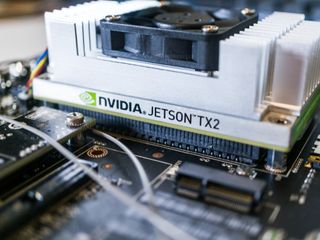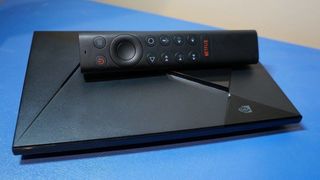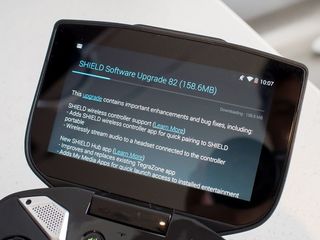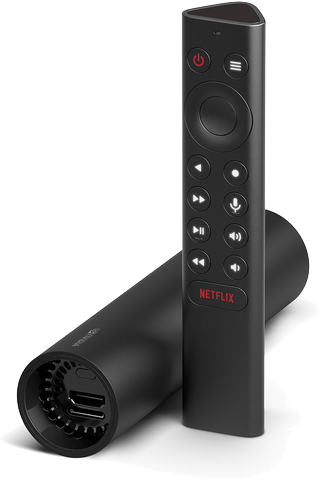NVIDIA will change Arm's relationship with the tech industry whether it intends to or not

It looks like NVIDIA is buying Arm in a deal with Softbank that will give the California-based company de facto control over Arm Holdings. You probably know Arm Holdings by the "product" they develop: ARM chips, like the one used inside the phone in your hand right now.
SoftBank found the right buyer for Arm Holdings. Right for SoftBank, anyway.
There's financial and legal language about SoftBank acquiring a sizeable amount of stock in NVIDIA, which is not only worth over $20 billion (in addition to $12 billion in cash and a performance bonus worth $5 billion) but would give SoftBank some sway in NVIDIA's future. It's also worth mentioning that Arm Holdings employees will receive $1.5 billion in equity, so that's nice to see. But in the end, this is SoftBank doing what it does best — buying a company that has value so it can find the right buyer to flip it to.
In some ways, NVIDIA is the right buyer. I still don't like the idea of NVIDIA having any control over the ARM design, but not because it wouldn't do a great job at it. I just don't think any company that uses ARM designs to make their own chips should be the one with the keys to the workshop.
The agreement says that Arm Holdings will stay in Cambridge (the U.K. Cambridge, not the Massachusetts one) and that NVIDIA will expand the location to establish it as a "new global center of excellence in AI research." That's not just fluff.

You probably know NVIDIA from either its Shield TV boxes or as a PC graphics card manufacturer. But that's only a small slice of NVIDIA's business; the company is also a leader in AI technology. NVIDIA develops an ARM-based system that powers ML neural clusters (groups of computers that "learn" together), power self-driving cars, are the brains in industrial equipment, and even make robots smart. The company is serious about AI and sees it as the future of computing.
Everything about this deal is great for NVIDIA but is it great for us all?
Having influence over the basic ARM design would be a good thing for NVIDIA, and probably the technology sector as a whole. NVIDIA knows how to optimize a processor core for AI or how to make sure the circuit paths between a CPU and a dedicated AI coprocessor are optimized for fast information transfer. As the future of tech, especially mobile tech, moves towards on-device machine learning and AI this is a good thing for any company making their own chips based on the ARM design.
This all sounds good, right? Here's the part that sounds even better but isn't going to play out a rosy as promised:
Be an expert in 5 minutes
Get the latest news from Android Central, your trusted companion in the world of Android
As part of NVIDIA, Arm will continue to operate its open-licensing model while maintaining the global customer neutrality that has been foundational to its success, with 180 billion chips shipped to-date by its licensees. Arm partners will also benefit from both companies' offerings, including NVIDIA's numerous innovations.
NVIDIA is a very hands-on company that is not afraid to make mistakes as long as whatever it made was also cool and innovative. What NVIDIA is not is "open" or customer-neutral. I don't mean open-source, where anyone can download source code or design diagrams. NVIDIA has always complied with any open-source licensing for tech it's used. I mean, NVIDIA doesn't like to share anything that gives it a competitive advantage.
No company wants to share the secret to its success.
Normally, that's fine and dandy. A for-profit company would be foolish to give all of its successful secrets away, and NVIDIA would be crazy to share its GPU core design with AMD, for instance. But buying ARM means it has to stay "customer neutral" or at least be neutral enough to ward off lawyers.
There is nothing to prevent NVIDIA from building out more than one ARM design, though. One that's open and customer-neutral for everyone to license the way things have always been, and another that's just a little bit better that NVIDIA keeps for itself. This is the whole reason NVIDIA wants Arm Holdings in the first place. The best chip designers — not chip makers who alter designs, but the folks who figure it all out from scratch — now work for NVIDIA.

I'm a huge NVIDIA fan, even if it doesn't sound like it. I've used the company's PC cards for both work and play for years, have three Shield TV boxes, and even have a couple of original Shield Portables still up and running. Heck, I hope this means NVIDIA will go back to making phone chips because I loved those, too.
The deal still needs regulatory approval from a handful of companies.
But I'm a bigger fan of anything that doesn't stifle progress in the tech — and especially the mobile tech — sector. While this deal may not go that far, it will give one company a very competitive edge that Apple, Samsung, Google, MediaTek, Texas Instruments, Qualcomm, and a long list of ARM licensees don't have. What if Apple or Qualcomm could have done it better?
A final thing to remember is that this is not a done deal. The agreement between Arm Holdings and NVIDIA was announced because both parties are fairly certain that regulators will approve of it. The proper federal agencies in the U.K., China, the Europen Union, and the United States still have to give any deal the green light. You can bet that the tech companies you know will be testifying both for and against the deal, so nothing is written in stone. NVIDIA thinks regulatory approval will be granted in approximately 18 months, and we'll probably see some changes to the agreement between now and then.

Android TV and GeForce gaming
The NVIDIA Shield Android TV is one of the best ways to experience Android TV. This small and compact gadget brings Android TV to your living room with full support for 4K HDR streaming, Dolby Vision and Dolby Atmos, online gaming, and AI upscaling tech that converts HD content into 4K.

Jerry is an amateur woodworker and struggling shade tree mechanic. There's nothing he can't take apart, but many things he can't reassemble. You'll find him writing and speaking his loud opinion on Android Central and occasionally on Twitter.
